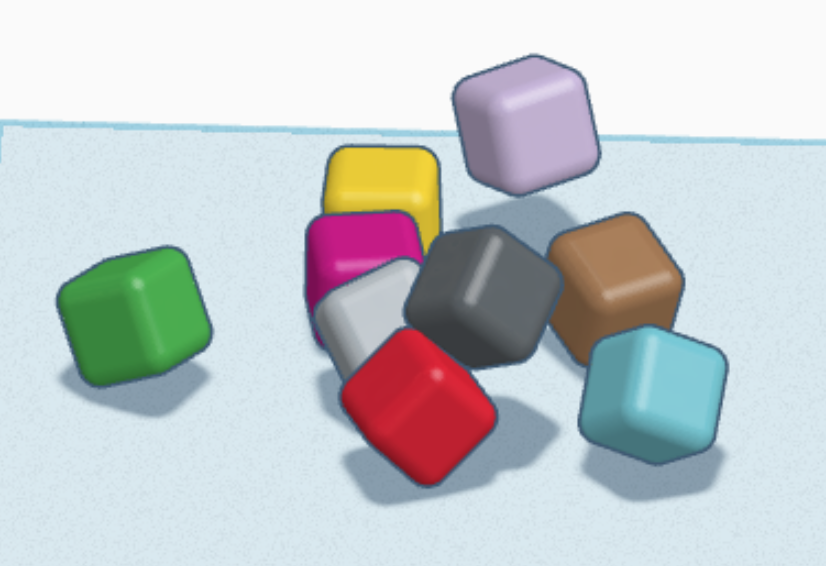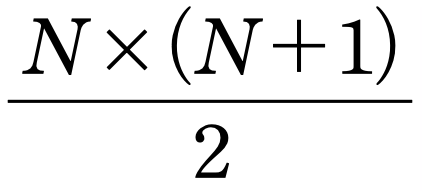Sum of N (N=1, 2, 3,...)
We have N consecutive natural numbers.
1, 2, 3, 4, 5, 6, . . . , 100, ...., N
When N is 6,
1, 2, 3, 4, 5, 6
are the number that we have.
Q1. Can you try representing these numbers using cube blocks?

Yes, simply, We can make number block for each number. like this.
| 1 | 2 | 3 | 4 | 5 | 6 |

Q2. Now, Let's try sum of those numbers using cube blocks. How would you visualize it?
1 + 2 + 3 + 4 + 5 + 6
We can combine all the blocks together.
1 + 2 + 3 + 4 + 5 + 6

Q3. What is the sum of those numbers? Use a generalized arithmetic expression.
to find generalized expression, we can also use the block image.
3-1) bring the twins of 'sum of N'.

3-2) Put the twins together to form a rectangle.

3-3) How many blocks are in the rectangle? find an arithmetic expression.

3-4) How many blocks are in the 'sum of N'?


Q4. for the number N, can you find a generalized expression?
sure.
expanding our imagination from 6 to N,
We can generalize the sum of N (N= 1, 2, 3, 4, ...).

Q5. Let's play the sum of N, using printed blocks.

